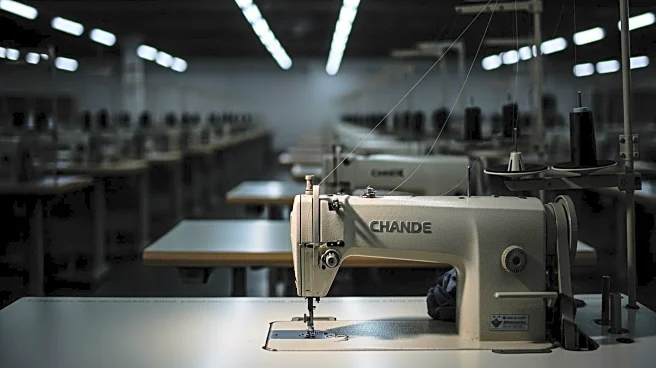What's Happening?
Workers in garment factories, known as 'maquilas' in Guatemala, are coming forward to expose the harsh realities they face while producing clothes for major U.S. brands. These factories are largely hidden from public view, but the workers' testimonies
are shedding light on the brutal conditions and labor practices within these facilities. The revelations are part of a broader discussion on the ethics of fast fashion and the responsibilities of U.S. companies in ensuring fair labor practices in their supply chains.
Why It's Important?
The exposure of poor working conditions in Guatemalan garment factories has significant implications for U.S. brands and consumers. It raises ethical questions about the responsibility of companies to ensure humane working conditions in their supply chains. This could lead to increased pressure on brands to improve transparency and labor standards, potentially affecting their reputation and consumer trust. Additionally, it highlights the need for stronger international labor regulations and enforcement to protect workers' rights.
What's Next?
As more workers come forward, U.S. brands may face increased scrutiny and calls for accountability. This could lead to changes in supply chain management practices, with companies potentially seeking to improve conditions or shift production to more regulated environments. Advocacy groups and consumers may push for legislative changes to enforce better labor standards globally. The situation could also spark broader discussions on the sustainability and ethics of fast fashion.
Beyond the Headlines
The revelations from Guatemalan garment workers could trigger a cultural shift in consumer behavior, with more individuals opting for ethically produced clothing. It also raises questions about the long-term viability of the fast fashion model, which relies on low-cost labor. The situation underscores the importance of corporate social responsibility and the potential for consumer activism to drive change in industry practices.
















